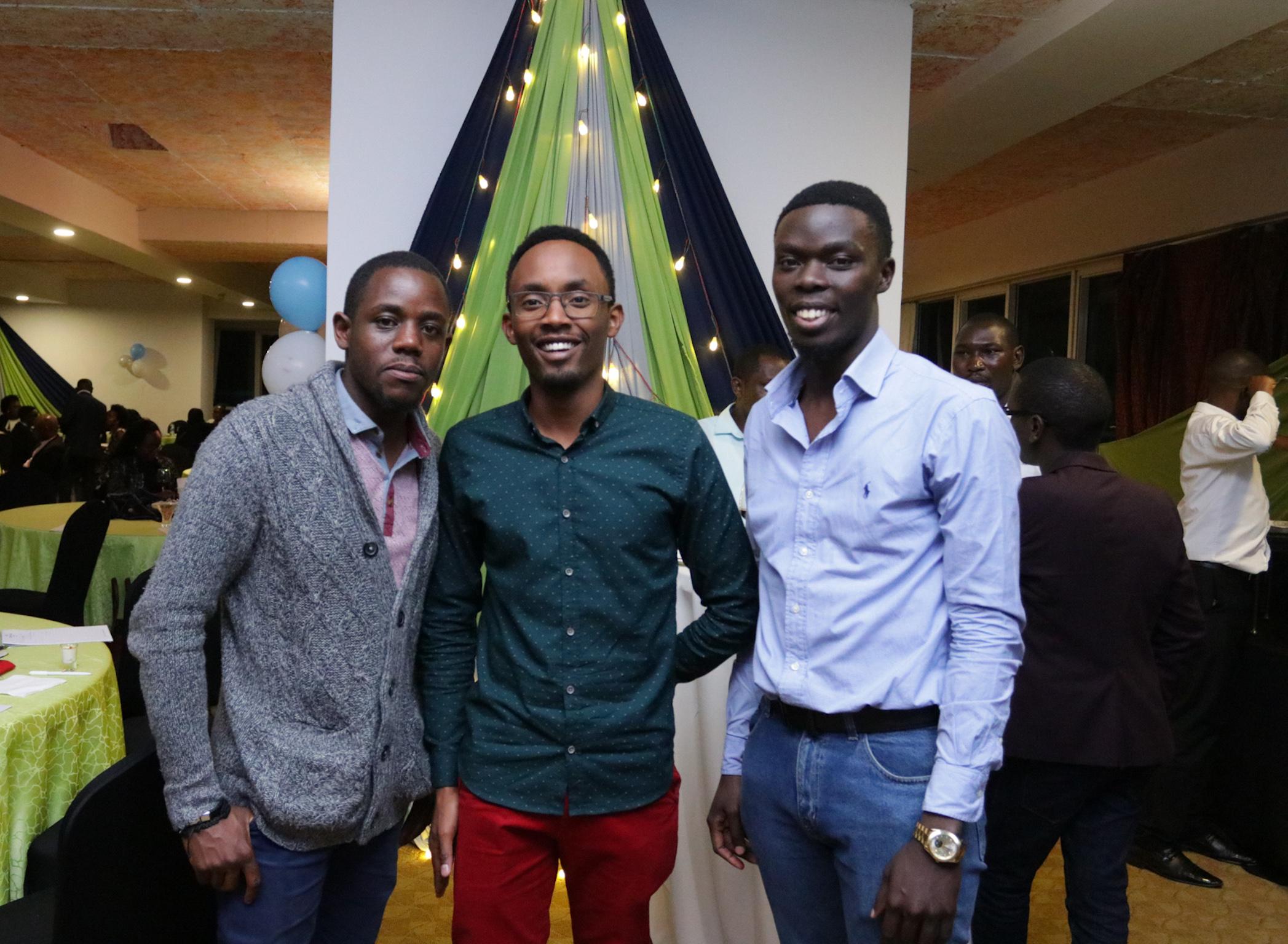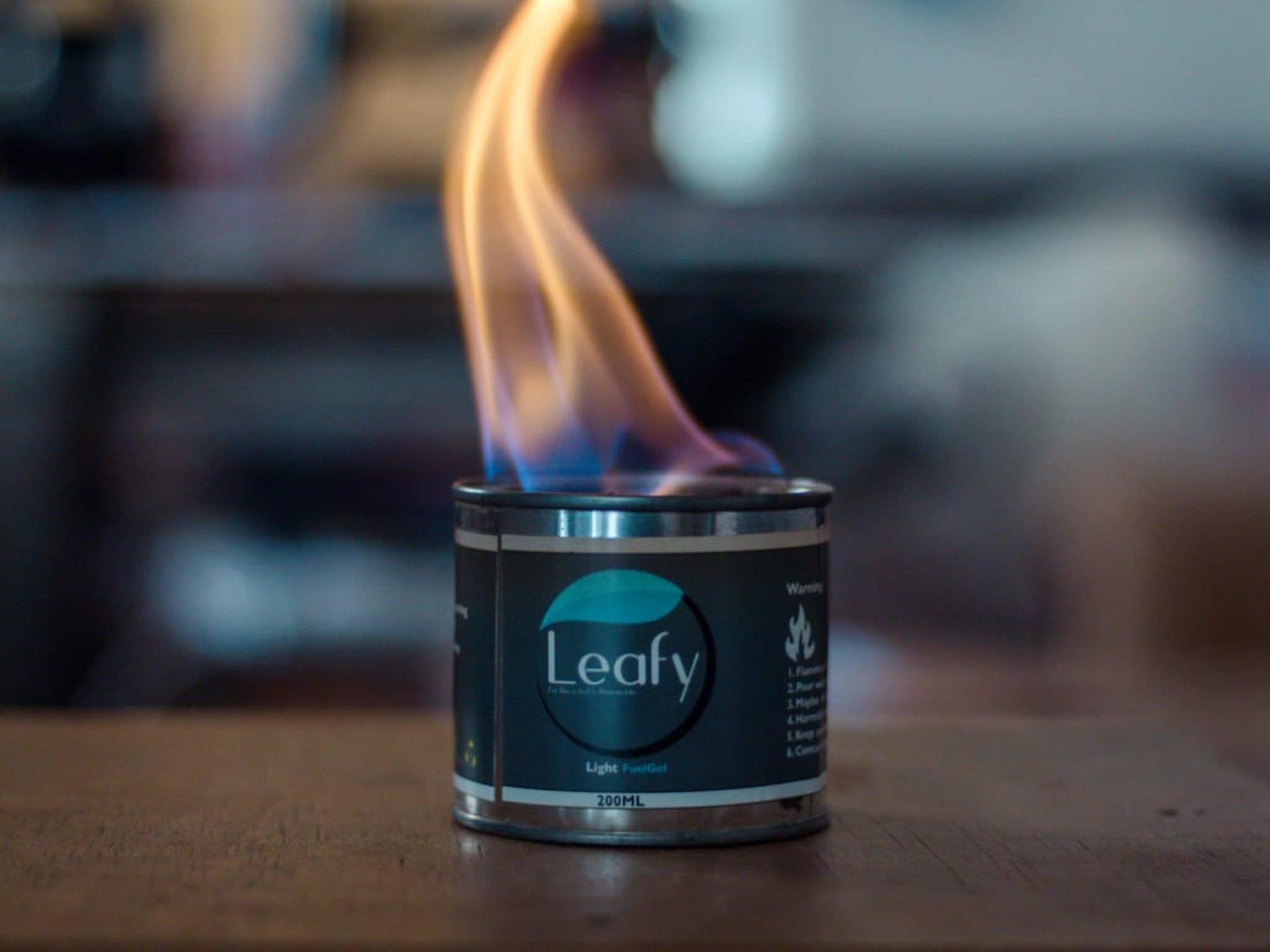The Kenyan company turning used nappies into cleaner fuel
More than 20 million tons of disposable nappies are burnt or dumped in landfills every year. Hazel Sheffield meets the team with a unique way to recycle them

In Kenya, used hygiene products like nappies and sanitary towels are a common sight in open fields, according to Peter Gachanja, a 26-year-old entrepreneur. His start-up, Leafy Ke, has pioneered a way to break down the component parts of a used nappy and turn them into an alternative fuel that can be used for cooking in catering businesses and homes.
“In Kenya, there is no proper disposing of these diapers,” Gachanja says. Nappies can take up to 500 years to completely decompose, releasing methane and other fuel into the environment as they decompose. “Sometimes some of them end up in the drainage, polluting the water,” he says. “It is a huge problem.”
What to do with the world’s used disposable nappies is not a glamorous problem – but the problem is so acute that it has united some of the world’s biggest multinationals and it’s most innovative grassroots entrepreneurs.
More than 20 million tons of disposable nappies are burnt or dumped in landfills globally every year. The environmental problem has been mounting since the 1960s and 1970s, when the use of these products first became widespread.
Gachanja and his business partners, Dennis Muguta and Melvin Kizito, met studying chemistry at the University of Nairobi. The team took inspiration from one of their professors, Dr Benson Wamalwa, during a unit on nanochemistry technology. Dr Wamalwa had previously developed a barcoded vaccine card that could be redeemed for discounts on farm products by mothers when they got vaccinated or brought a child for vaccination, to stop poverty from preventing mothers from vaccinating their children.
“He’s our mentor for the business,” Gachanja says. “He opened our eyes in terms of what our capabilities were and what applications we could use with the knowledge that we had.”
Leafy Ke has refined the process of pressure washing and shredding used hygiene products by separating the layers of cotton, polymer and plastic. The layers are then ground down and put through a chemical process that produces a gel. The gel is sold in tins as a clean fuel, with considerably reduced carbon dioxide compared to other common sources of fuel in Kenya, helping to mitigate climate change. The founders say it will help limit deaths caused by carbon monoxide poisoning from conventional cooking fuel.
“Our clients are households and catering services,” says Gachanja. “In catering, most businesses use cotton wool soaked in ethanol or other spirits. Ours run better. And the good thing is, it’s a clean fuel, because it produces considerably reduced amounts of carbon dioxide.”
The idea caught the imagination of judges at the sixth annual ClimateLaunchpad competition, the world’s largest green start-up competition, who awarded Leafy Ke first place out of 2,601 business ideas to tackle climate change from 53 countries.
Edward Mungai, a judge from ClimateLaunchpad, says so-called dirty fuels such as charcoal and kerosene are used widely across Kenya, causing indoor pollution and health complications while at the same time emitting large amounts of carbon dioxide. “Leafy Ke stood out because it solves two problems at once,” Mugai says. “It solves the issue of waste management for diapers and provides clean fuel. The innovation, practicality and scalability of the idea really impressed the judges.”
Leafy Ke will now take up a place on an accelerator programme with the 16 other finalists, run by the EIT Climate-KIC, the public-private partnership behind the award. The other finalists include Maclec, a turbine company set up by Indian entrepreneurs. Maclec is working on technology to enable millions of farmers and townships near running waters to generate hydropower.

The Indian team took second place in the competition, while Enerdrape, a start-up from Switzerland, came in third with the world’s first geopanel that captures heat in existing indoor environments located in the underground and transfers it for renewable heating and cooling to buildings.
Leafy Ke’s win reflects the urgent need to reduce the amount of disposable hygiene products that end up in landfills – or worse, scarring the countryside.
Other companies have established processes for the expensive and tricky problem of cleaning and breaking hygiene products into their component parts of plastic, cellulose and super absorbent polymer. But some have struggled to establish a market for the recycled materials.
In 2018, Proctor and Gamble, which manufactures nappies through its brands Pampers and Luvs, joined with Angelini, an Italian healthcare group, to turn dirty nappies into plastic bottles and viscose clothing. Fater’s patented process involves collecting the used products from curbside bins, hospitals and other facilities in more than 50 towns, trucking them to a waste management facility, dry cleaning the fibres and separating them into cellulose, absorbing material and mixed plastic.
By the end of 2020, a bio-refinery in Amsterdam will have refined the process for converting the raw materials into biologically-based products, such as biodegradable plastics and bio-fertilisers. If successful, the venture will be an advance on the UK-based Knowaste, which was forced to close its 70,000 tonne-per-year recycling plant in Holland in 2007 after it struggled to find markets for the final product – and a new incinerator beat it on price.
Leafy Ke is working with rubbish-collecting companies to bring used hygiene products to two different locations – one where the process has to be done by hand and another where it is automated. It has been selling the product to households in the informal settlements around Nairobi. Gachanja says that the Kenyan government’s target to cut carbon emissions 30 per cent by 2030 should open the market to cleaner fuels like the one Leafy Ke has produced.
The company plans to use its prize money to establish a permanent facility and equipment to scale their idea. “This means so much to us,” Gachanja said, accepting the prize. “This means parents will be able to look after their families better. Children won’t have to sleep with smoke in their homes from dirty fuel. And carbon emissions can be significantly reduced.”
Join our commenting forum
Join thought-provoking conversations, follow other Independent readers and see their replies
Comments